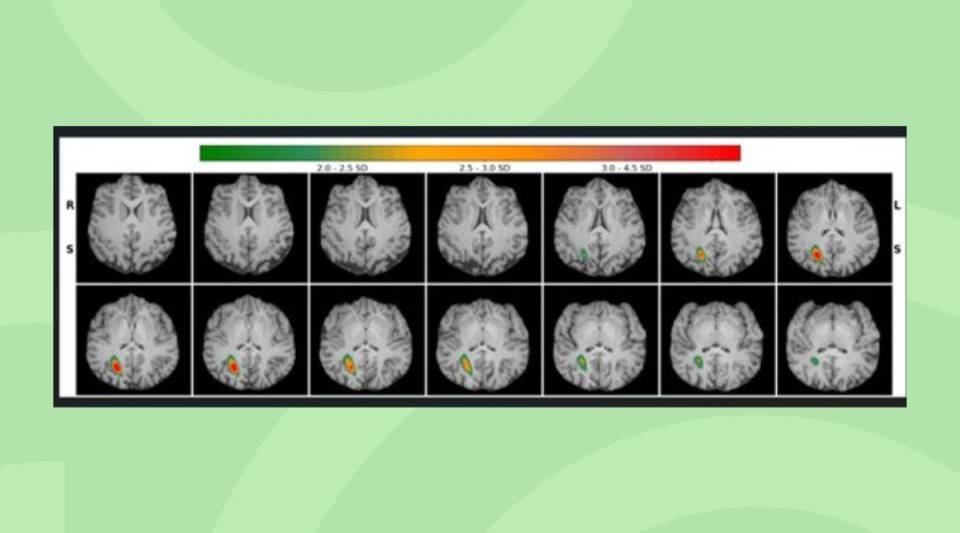- What is it?
- Causes and risk factors
- Symptoms
- Diagnosis
- Treatment
- Progression
- Living with the disease
- Research lines
- Frequently asked questions
Multiple Sclerosis Frequently Asked Questions
Multiple sclerosis is not hereditary, but there is a certain genetic disposition. The risk of developing the disease is higher among families with individuals with multiple sclerosis, and depends on the level of kinship. Thus, if, for the general population with no family member affected, the risk is 1 per 1,000 inhabitants, for first level of kinship relatives of an individual affected, such as children, siblings, or non-identical twins, the risk is 2.5 to 5 cases per 100 inhabitants, and in the case of both parents being affected it increases to 20 per 100 inhabitants.
No. Even so, as occurs with other diseases for which the cause is unknown, patients with multiple sclerosis cannot be blood donors as a general precaution measure.
Although some factors have been considered, such as infections, dietary habits, lifestyles, heat, stress, vaccinations, etc., none of them, except infections, are unable to cause or be triggers of a flare-up due to an immunological activation process.
The lumbar puncture consists in making a puncture between the lumbar vertebrae, with the aim of extracting a sample of fluid that surrounds the spinal canal, the cerebrospinal fluid, and to analyse its contents. It is not always necessary to analyse it to reach the diagnosis, but its information can be useful in many cases, and performed by an expert, and in suitable conditions, it is a safe procedure.
Anaesthesia whether local or general, can be given in the same way as any other type of patient and carries the same risks. Individuals with advanced disease may suffer respiratory problems and caution is required in these cases.
It is contraindicated in people who have a pacemaker inserted, as the magnetic fields that the system produces could alter its functioning. It must be avoided in individuals with a prosthesis that contains materials that can be moved or altered by these fields, such as some traumatological implants, metal heart valves, surgical clips, etc. It should be avoided during the first trimester of pregnancy, in order to prevent mild foetal malformations. People allergic to the contrast used, usually gadolinium, must avoid its administration.
There is no surgical procedure that can cure the disease. It is important that this information is available to patients, with the aim of preventing expecting miracles from practices with no scientific basis.
Years ago, a lot of propaganda appeared in the press, about that patients could have an operation of the costoclavicular junction in order to free the brachiocephalic trunk or the vertebral artery (scalene surgery). Another type of intervention that received high-profile coverage was the placing of implants (“stents”) in the jugular vein. These types of intervention put the health of the patient at risk when there is no evidence of their benefits, and much less still that they can cure the disease. If you have any doubts on any new procedure that you may heard in the communications media, the best way to clarify them is to consult your neurologist.
Rehabilitation in itself does not alter the course of the disease, but it can improve the physical condition, mobility, safety and, with that, independence and quality of life. It must be of a multidisciplinary nature and must be directed at physical aspects associated with strength, coordination, resistance, balance, gait or with the use of devices to improve walking, but also aspects that favour becoming more independent in daily life. It should also include strategies to conserve energy, to combat fatigue, and to improve the techniques used to dress, eat, drive, etc., through occupational therapy.
Heat does not make the disease worse, although many patients consider that hot or humid weather, baths, hot showers, or fever worsen the symptoms of the disease. In these cases is recommended to avoid the heat and bath with water more cold than hot are recommended. The installation of air-condition may be an essential factor in the adaptation of the home.
Urinary dysfunction such as micturition urgency, leaks, or bladder emptying problems, are some of the most common symptoms of the disease. They could appear at any time, but they are more common as the disease progresses. It is important to communicate this to your neurologist, since a good diagnostic evaluation by a urologist will help to identify the mechanism responsible for the dysfunction, and with this to give a better individual response to drug treatment, as well as to hygiene measures.
Multiple sclerosis is a disease that does not normally produce severe memory changes, with a few exceptions in patients with a severe progression and in an advanced stage. However, it has been observed in different studies that there may be attention and concentration problems that may affect work or learning activities. These problems, in many cases, are reinforced by an altered mood state, either due to anguish or despair.
Legally, there is no obligation to disclose this information at work. It is important to know that, in many cases, the definitive diagnosis may take several years, and, once diagnosed, you may never have a disability that prevents carrying out your usual work, or it can take many years to have one.
The majority of patients can drive without any problem. In those that have difficulty in moving the legs, the adaption of the car may enable them to continue driving. In the case of seeing double, they will have stop driving until the situation is resolved, since it may be a temporary alteration. Some patients may have important problems in coordination of movements, and should stop driving, but there are few cases.
It is common and normal to be afraid, distressed, angry or confused when diagnosed with a disease of uncertain behaviour. Apart from this, depression is the most common alteration, and up to 5 out of every 10 patients may be affected. The cause is due to many factors related to a chronic disease that may involve physical or cognitive limitations that may interfere in the usual activities of the patient and, as such, in his/her quality of life, and on occasions is influenced by the side effects of some medication. What is important is that if you experience any change in mood, in any phase of the disease, tell your doctor about it in order that he/she can suggest the most appropriate psychological/pharmacological treatment.
Substantiated information by:


Published: 20 February 2018
Updated: 20 February 2018
Subscribe
Receive the latest updates related to this content.
Thank you for subscribing!
If this is the first time you subscribe you will receive a confirmation email, check your inbox


